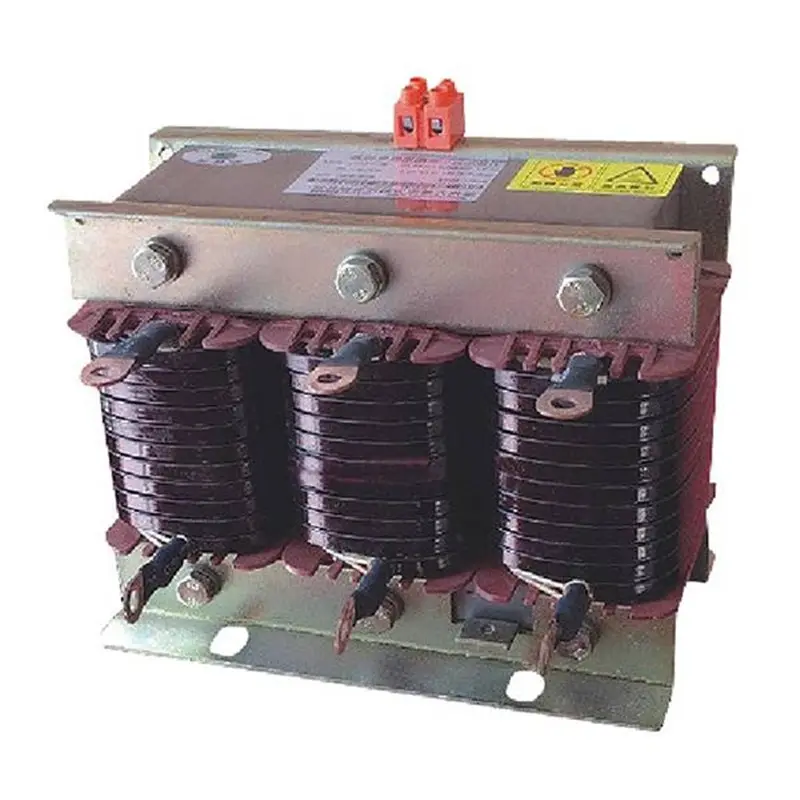In today's power systems, whether in industrial or residential environments, the increasing number of harmonic sources has led to serious pollution of the power grid. Resonance and voltage distortion caused by these harmonics can cause abnormal operation or even failure of various power equipment. To alleviate these problems, adding series reactors to the system can effectively improve power quality and prevent operational interruptions. This blog will explore the advantages and functions of series reactors in power systems, focusing on their contribution in reducing harmonics and improving overall performance.
Series reactors, also known as line reactors, are important and versatile components in power systems used to regulate and control voltage levels. It is usually connected in series with other electrical equipment such as capacitors, transformers or motors. By adjusting the reactance of the series reactor, additional impedance is provided to effectively reduce the impact of harmonics on the power system. One of the main advantages of using a series reactor is the ability to lower the resonant frequency of the system, minimizing the risk of voltage fluctuations and improving stability.
Harmonics generated by nonlinear loads can cause voltage and current waveform distortion, adversely affecting power quality. This deformation can lead to equipment overheating, inefficient power transfer, and premature failure. Series reactors counteract these negative effects by introducing impedance that attenuates harmonic currents and reduces voltage distortion. Incorporating them into power systems also helps prevent the occurrence of resonance, a phenomenon in which a system's natural frequency coincides with harmonic frequencies, leading to excessive voltage fluctuations and potential equipment damage.
Another significant benefit of including series reactors in power systems is their contribution to power factor correction. Through the series combination of capacitors and reactors, the system achieves capacitive reactance at power frequency. This improved power factor reduces line losses and enables more efficient energy distribution. Additionally, series reactors help stabilize voltage fluctuations, minimize load-induced voltage sags, and improve overall power reliability.
The integration of series reactors has applications in a variety of industries and environments where harmonic pollution poses a significant challenge. Industrial sectors that make heavy use of non-linear loads, such as manufacturing plants and data centers, can benefit greatly from the installation of series reactors. In addition, residential complexes and commercial buildings, especially those with extensive HVAC systems or advanced electronic equipment, can also take advantage of series reactors to improve power quality and minimize equipment downtime.
In the face of increasingly serious harmonic pollution in power systems, the use of series reactors is a proactive measure to ensure optimal power quality. Their ability to reduce harmonics, mitigate resonances and improve power factor correction provides significant advantages for industrial and residential applications. By investing in series reactors, power system operators can protect equipment, increase energy efficiency and ensure uninterrupted power supply.

Post time: Nov-17-2023